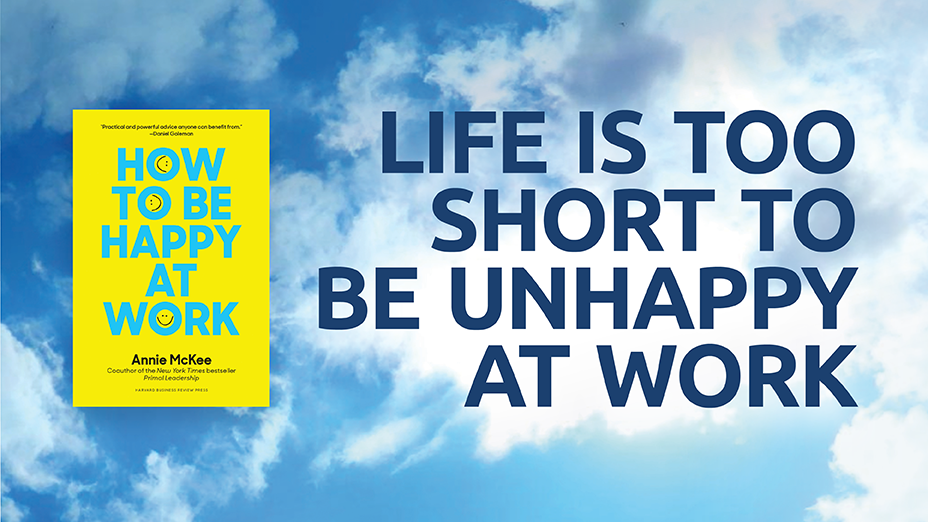If you think about it, work-life balance is a strange aspiration for a fulfilling life. Balance is about stasis: if our lives were ever in balance — parents happy, kids taken care of, work working — then our overriding thought would be to shout, “Nobody move!” and pray all would stay perfect forever. This false hope is made worse by the categories themselves. They imply that work is bad, and life is good; we lose ourselves in work but find ourselves in life; we survive work, but live life. And so the challenge, we are told, is to balance the heaviness of work with the lightness of life.
Yet work is not the opposite of life. It is instead a part of life — just as family is, as are friends and community and hobbies. All of these aspects of living have their share of wonderful, uplifting moments and their share of moments that drag us down. The same is true of work, yet when we think of it as an inherent bad in need of a counterweight, we lose sight of the possibility for better.
It seems more useful, then, to not try to balance the unbalanceable, but to treat work the same way you do life: By maximizing what you love. Here’s what we mean.
Consider why two people doing exactly the same work seem to gain strength and joy from very different moments. When we interviewed several anesthesiologists, we found that while their title and job function are identical, the thrills and chills they feel in their job are not. One said he loved the thrill of holding each patient hovering at that one precise point between life and death, while he shuddered at the “pressure” of helping each patient get healthy once the operation was complete. Another said she loved the bedside conversations before the operation, and the calm sensitivity required to bring a sedated patient gently back to consciousness without the panic that afflicts many patients. Another was drawn mostly to the intricacies of the anesthetic mechanism itself and has dedicated herself to defining precisely how each drug does what it does. Each one of us, for no good reason other than the clash of our chromosomes, draws strength from different activities, situations, moments and interactions.
Think of your life’s many different activities as threads. Some are black, some are grey and some are white. But some of these activities appear to be made of a different substance. These activities contain all the tell-tale signs of love: before you do them, you find yourself looking forward to them; while you’re doing them, time speeds up and you find yourself in flow; and after you’ve done them, you feel invigorated. These are your red threads, and research by the Mayo Clinic suggests that doctors who weave the fabric of their life with at least 20% red threads are significantly less likely to experience burnout.
The simplest way for you to do this is to spend a week in love with your job. This sounds odd, but all it really means is to select a regular week at work and take a pad around with you for the entire week. Down the middle of this pad, draw a vertical line to make two columns, and write “Loved It” at the top of one column and “Loathed It” at the top of the other. During the week, any time you find yourself feeling one of the signs of love scribble down exactly what you were doing in the Loved It column. And any time you find yourself feeling the inverse — before you do something, you procrastinate; while you do it, time drags; and when you’re done with it, you hope you never have to do it again — scribble down exactly what you were doing in the Loathed It column.
Obviously, there’ll be plenty of activities in your week that don’t make either list, but if you spend a week in love with your work, by the end of the week you will see a list of activities in your Loved It column that feel different to you than the rest of your work. They’ll have a different emotional valence, creating in you a distinct and distinctly positive feeling, one that draws you in and lifts you up.
Each of us, for no good reason other than the clash of our chromosomes, draws strength from different activities, situations, moments and interactions.
Our research (a stratified random sample of the working populations of nineteen countries) reveals that 73% of us claim that we have the freedom to modify our job to fit our strengths better, but that only 18% of us do so. Your challenge, then, is to use your red threads to intelligently change, over time, the content of your job, so that it contains more things that you love doing and fewer that you’re aching to escape.
The most helpful categories for us are not “work” and “life.” We should not struggle to balance the two. Instead, the best categories are “love” and “loathe.” Our goal should be to, little by little, week by week, intentionally imbalance all aspects of our work toward the former and away from the latter. Not simply to make us feel better, but so that our colleagues, our friends and our family can all benefit from us at our very best.
We can’t always do only what we love. But we can always find the love in what we do.





.png)

%20(1).png)
.jpg)

What Did You Think?